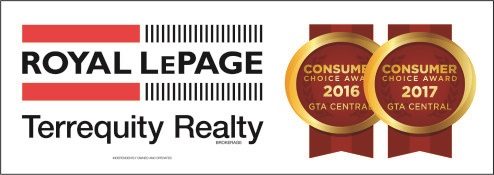Thinking About Buying an Investment Properties to Rent Out!
Take 2 minutes to read this!
This is an important issue at present, as many people are considering purchasing investment properties. Joe Richer is published in the Saturday Toronto Star every week
If you are thinking about investing, take 2 minutes to read this article. Even though it was first published in 2019, the premise is still the same.
Question: My wife and I are thinking about buying a condo as an investment property. What do we need to consider?
I never know where questions might come from. This one was asked by some hockey parent friends who have been thinking about buying an investment property with the intention of renting it out. That’s a different type of investment than the one I mentioned in a previous column about flipping properties.
Either way, I strongly recommend working closely with a real estate salesperson who can help you find suitable properties and provide information about property values and current trends in the neighbourhood where you are looking to purchase. They may also be able to help you find a tenant if their brokerage handles residential leases.
You’re going to need a lawyer who is insured to practise real estate law in order to finalize the transaction, so it’s a good idea to bring them into the process early. They can talk to you about the closing expenses, such as the taxes you may have to pay (including HST), and the legal issues associated with owning an investment property. Your lawyer can also help you review both the condominium corporation’s bylaws — which may prevent you from renovating or renting your unit without the condo board’s permission — and the condo’s status certificate.
The status certificate is an important document that can tell you about the state of the condominium corporation and the unit you are purchasing, notably regarding finances. It will include information on whether the previous owner was up to date on paying their condo fees (meaning you could be held responsible for their outstanding debts), or if the condo corporation is contemplating major repairs or is experiencing financial issues that could lead to condominium fee increases or a special assessment. The cost of the certificate is limited by law to $100, and you can make your agreement conditional upon a satisfactory review of the findings.
Before you rent the unit to a tenant, you would be well-advised to examine the local municipal bylaws as well as the condo corporation’s rules, because either may affect your ability to proceed; that’s particularly the case if you want to use the condo for short-term rentals (as in weeks or even days). Local bylaws may also restrict the number of such rentals that are permitted. You will also want to seek advice about the latest versions of the Residential Tenancies Act and the Condominium Act, and ensure the unit meets all of the relevant building, fire and electrical safety codes.
Remember that major renovations (moving walls, for instance, or upgrading the plumbing or electrical systems) will require applying for building permits, and that Consumer Protection Ontario recommends searching through the Consumer Beware List when you’re in the market to hire a contractor.
If you have a question for Joe about the home buying or selling process, please email askjoe@reco.on.ca.
By Joe Richer Registrar, Real Estate Council of Ontario
Reprinted From The Toronto Star – Sat., April 6, 2019

